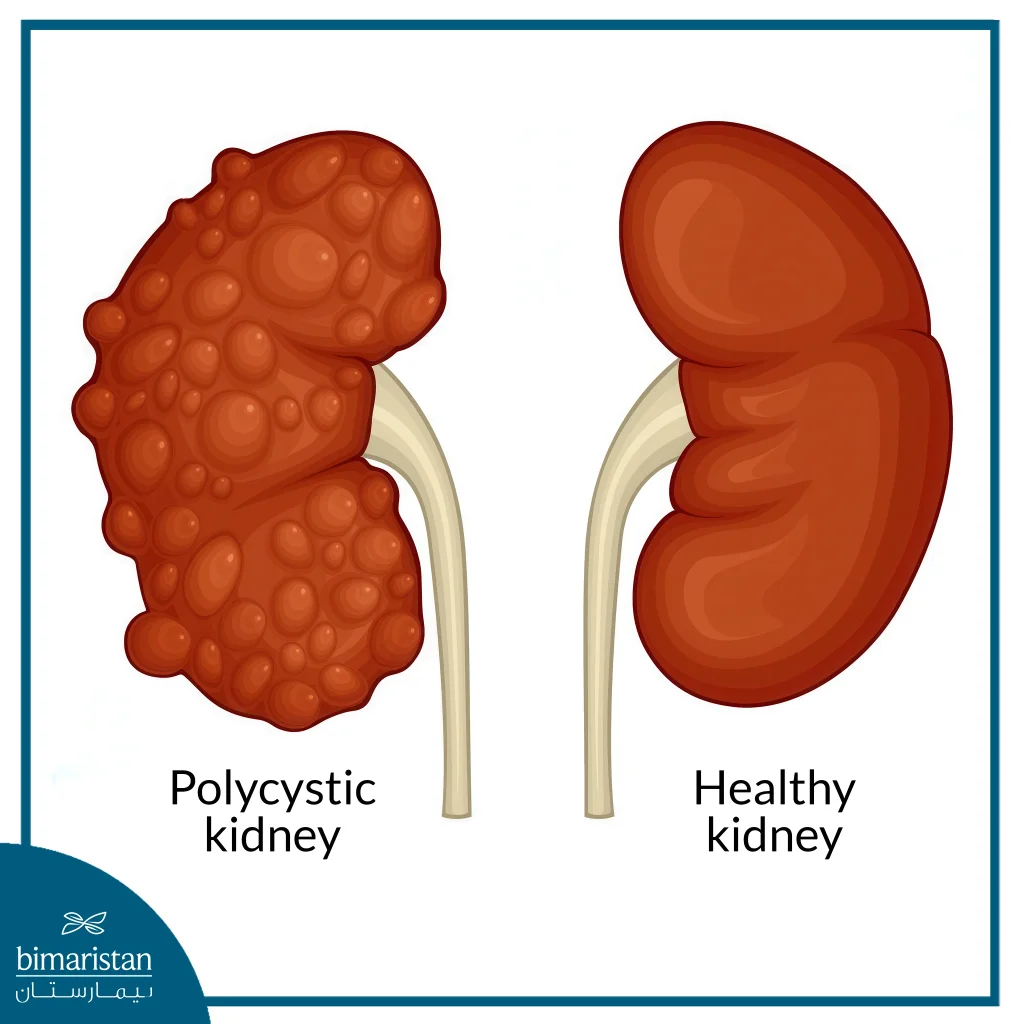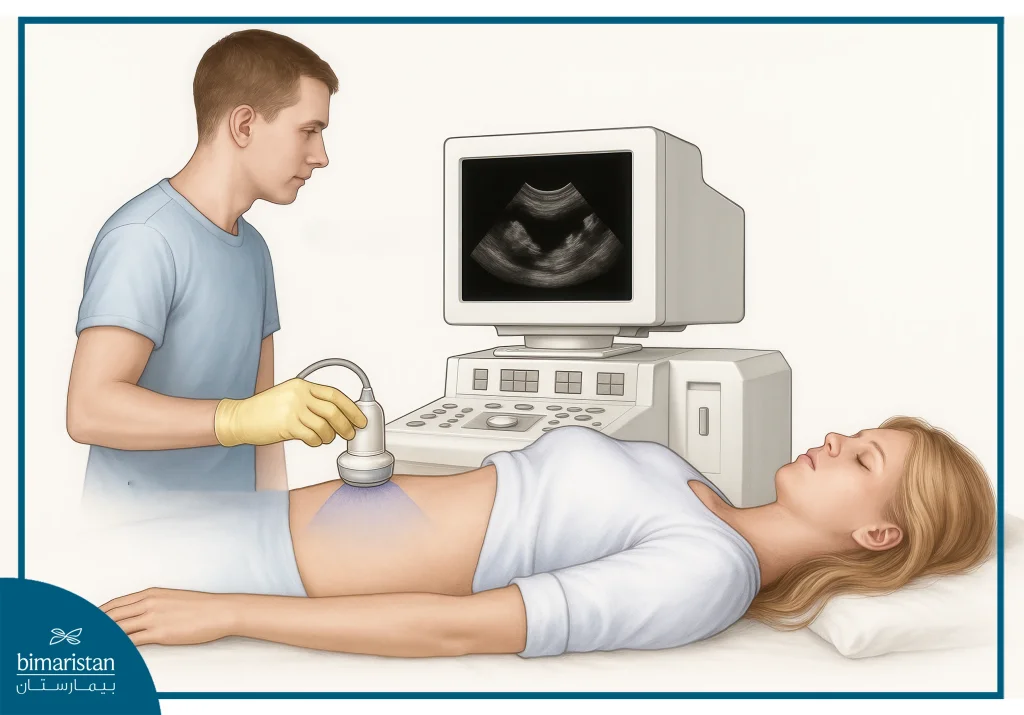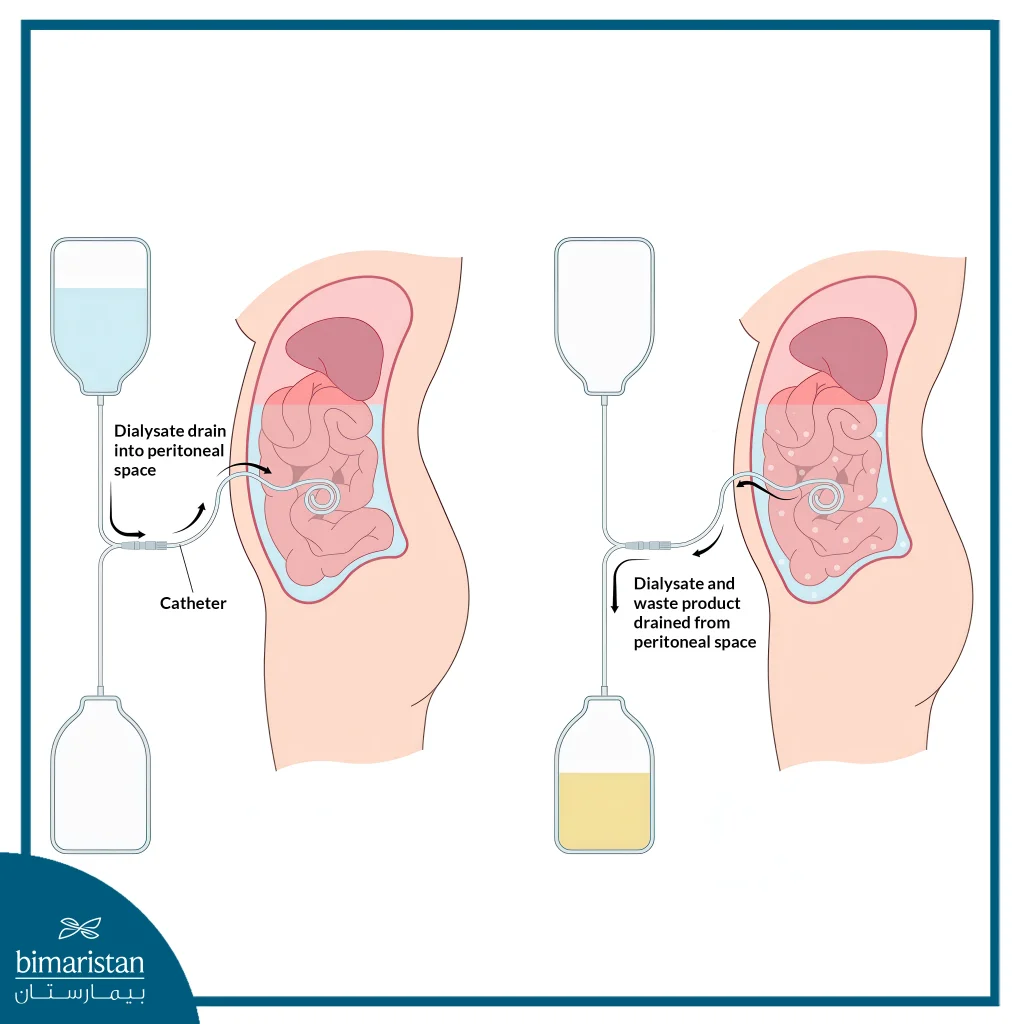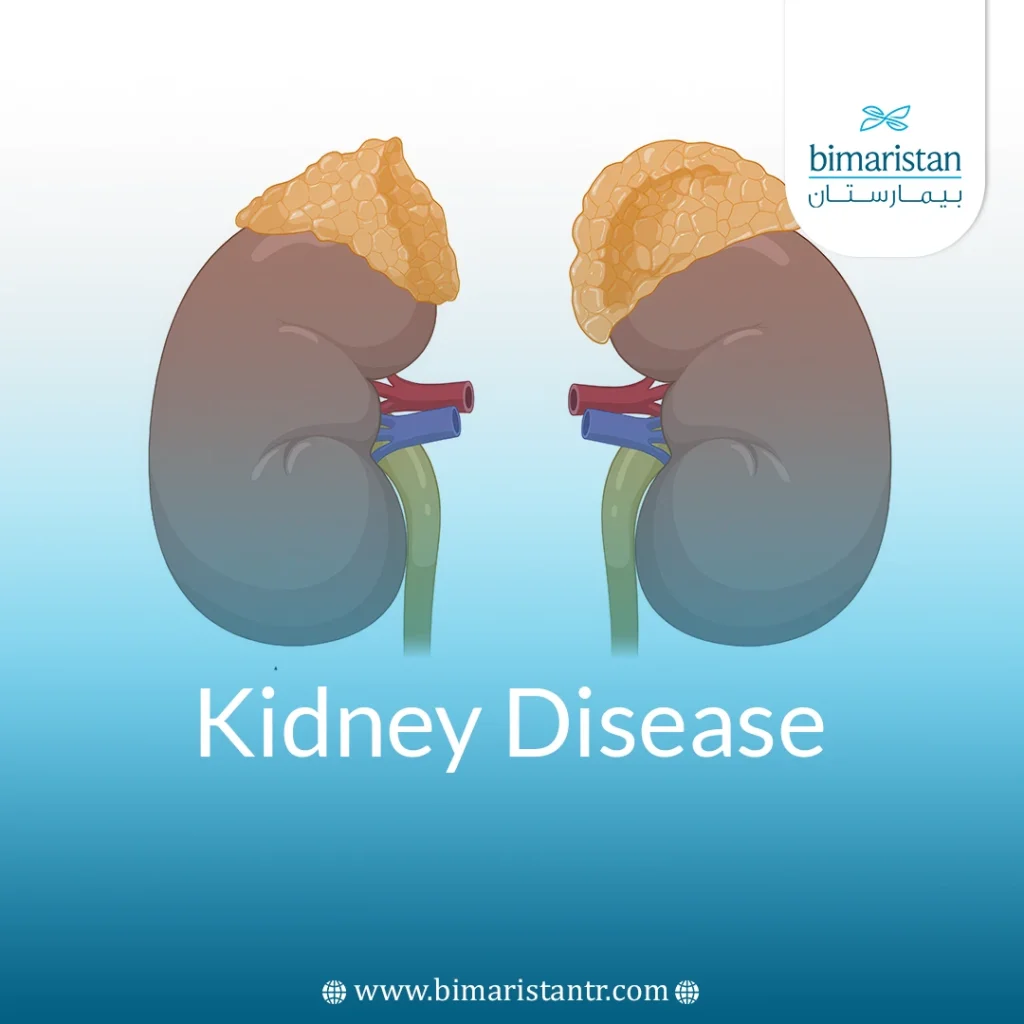Kidney diseases represent a variety of conditions and disorders affecting kidney function. Most of these diseases impact the kidney units known as nephrons, hindering their ability to eliminate waste and excess fluids. The severity of kidney diseases ranges from mild cases to more severe ones and can sometimes lead to kidney failure.
If these diseases are not treated appropriately and in a timely manner, the kidneys may lose their ability to perform vital functions entirely. In this case, the patient is forced to undergo dialysis sessions to remove toxins from their body, emphasizing the importance of early detection and immediate treatment to maintain kidney health.
What are the functions of the kidneys?
To understand kidney diseases correctly, it is essential to know the basic functions they perform. Healthy kidneys play a vital role in the body, performing the following tasks:
- Maintaining fluid and mineral balance: The kidneys regulate the levels of water and minerals, such as sodium, potassium, and phosphorus, in the blood, thereby contributing to overall health stability.
- Removing waste: The kidneys filter the blood to remove waste products resulting from digestion and muscular activity, as well as eliminate chemicals and medications to which the body is exposed.
- Producing renin: The kidneys contribute to the production of renin, a hormone that plays an important role in regulating blood pressure and maintaining fluid balance.
- Stimulating red blood cell production: The kidneys produce erythropoietin, a hormone that stimulates the bone marrow to produce red blood cells, enhancing the body’s ability to transport oxygen.
- Activating vitamin D: The kidneys convert vitamin D into its active form, which is essential for bone health and other bodily functions.
- Periodically filtering blood: The kidneys filter all the blood in the body every 30 minutes, ensuring the removal of toxins and maintaining the body’s health continuously.
These essential functions are crucial for maintaining the body’s proper functioning, and any disruption to them can lead to serious health issues.
Forms of Kidney Diseases
Kidney diseases vary between chronic and hereditary types, each with its own characteristics and causes. Some of them include:
- Chronic Kidney Disease (CKD): Chronic kidney disease is a complex health condition characterized by the kidneys’ inability to effectively filter toxins and excess fluids from the blood. The severity of the disease varies and often worsens over time if appropriate treatment measures are not taken.
- Polycystic Kidney Disease: This is a hereditary disorder that causes fluid-filled cysts to form on the kidneys, hindering their ability to filter waste. This disease can lead to serious complications such as high blood pressure and kidney failure.
- Lupus Nephritis: Lupus is an autoimmune disease in which the immune system mistakenly attacks the body’s healthy cells. When the immune system attacks the kidneys, inflammation of the glomeruli occurs, leading to a decline in their function.
- Interstitial Nephritis: This occurs as an adverse reaction to certain medications, affecting the kidneys’ ability to filter toxins. The condition typically improves upon discontinuation of the offending drug, highlighting the importance of effective communication with doctors regarding any side effects.
- Glomerulonephritis: The glomeruli are the small filters in the kidneys that remove waste from the blood. Damage to the glomeruli leads to a decline in kidney function. Glomerulonephritis often occurs after a bacterial infection, such as streptococcal infection, necessitating immediate treatment.
- APOL1 Gene-Related Kidney Disease: This gene contributes to the production of an immune protein, but inheriting a mutated version from both parents may increase the risk of kidney disease.
- Chronic Viral Diseases: Conditions like HIV, hepatitis B, and hepatitis C can lead to kidney damage. These diseases require careful medical attention and ongoing management to maintain kidney health.
- Pyelonephritis: This is an infection that affects the urinary tract within the kidneys and can lead to scarring during recovery. If such infections recur, they may cause permanent kidney damage, necessitating preventive measures to avoid recurrence.

What are the Causes of Kidney Diseases?
The causes of kidney diseases are varied and can be summarized in conditions that put significant stress on the kidneys, including:
- High Blood Pressure: This leads to kidney strain due to damage to the small arteries, resulting in reduced blood flow to the kidneys.
- Diabetes: Elevated blood sugar levels cause abnormalities in the small blood vessels in the kidneys, leading to impaired function and issues in the filtration process.
- High Cholesterol: Elevated cholesterol levels are linked to atherosclerosis and heart disease, which can negatively impact kidney health. Atherosclerosis can also damage the renal artery.
- Kidney Infections: Conditions such as pyelonephritis can lead to a decline in kidney function.
- Immune System Disorders: Certain immune system disorders can result in the deposition of antibodies on the kidney glomeruli, leading to inflammation that impacts kidney function.
- Hereditary Polycystic Kidney Disease: A genetic condition that leads to multiple functional disorders in the kidneys.
- Obstructions and Blockages in the Urinary Tract: Conditions such as stones, fibrosis, or strictures in the ureters or prostate enlargement can hinder urine flow and affect the kidneys.
- Medications: Long-term use of certain medications, such as non-steroidal anti-inflammatory drugs and analgesics, can lead to glomerulonephritis.
- Alcohol Consumption: When alcohol is consumed, the kidneys must work harder to perform their functions, which can lead to long-term kidney disease.
What are the risk factors for kidney disease?
Several factors increase the likelihood of developing kidney disease, including:
- Aging
- Smoking
- Obesity
- Family history of kidney disease
- Diabetes
- High blood pressure
- Heart failure
- Liver diseases
Symptoms of Kidney Diseases
Symptoms of kidney diseases appear when there are problems and disorders within the kidneys. Here are some symptoms that indicate potential kidney issues:
- Shortness of breath and rapid fatigue: These symptoms indicate serious problems with kidney function and may be a sign of fluid accumulation in the lungs or anemia.
- Abnormal urination: Changes in the appearance of urine or excessive urination may indicate kidney dysfunction.
- Fatigue, exhaustion, and difficulty concentrating: These reflect a decline in kidney function and the accumulation of toxins in the body, affecting daily activities.
- Insomnia and difficulty sleeping: These issues impact quality of life and may indicate problems with toxin filtration.
- Dry skin and itching: This indicates an imbalance of minerals in the body, often associated with kidney failure.
- Swelling and edema: This indicates the loss of proteins from the blood or the kidneys’ inability to balance fluids.
- Altered taste and bad breath: This may indicate toxin buildup in the body and affect appetite.
- Gastrointestinal disturbances: These include vomiting, nausea, and loss of appetite, which are signs of elevated urea levels.
- Muscle cramps: These indicate an electrolyte disturbance in the blood but are less significant compared to other symptoms.
How are Kidney Diseases Diagnosed?
The diagnosis of kidney diseases begins with analyzing the patient’s medical history, as a family history of kidney failure, high blood pressure, or diabetes may indicate potential kidney problems. However, laboratory tests are essential to confirm the diagnosis, with some of the most notable tests being:
- Complete Blood Count (CBC): A CBC helps detect the presence of anemia. The kidneys secrete erythropoietin, a hormone essential for the formation of red blood cells. When the kidneys are damaged, the body’s ability to produce this hormone decreases, resulting in a reduced red blood cell count and worsening of anemia.
- Serum Electrolyte Levels: Kidney diseases can affect electrolyte levels in the body. Results may indicate elevated potassium levels and decreased bicarbonate levels in patients with chronic kidney disease. This test can also reveal increased acidity in the blood.
- Blood Urea Nitrogen (BUN) Test: BUN levels rise when the kidneys begin to fail. Usually, the kidneys remove protein breakdown products from the blood. Still, after kidney damage, these products accumulate, leading to increased urea levels, which are responsible for the characteristic smell of urine.
- Creatinine Test: As kidney function declines, creatinine levels increase. Creatinine is a byproduct of normal muscle wear and tear. It is an important indicator of kidney function and is related to muscle mass.
- Parathyroid Hormone Test: The kidneys and parathyroid glands interact to regulate calcium and phosphorus levels. Changes in kidney function affect parathyroid hormone secretion, which in turn affects calcium levels in the body. In advanced stages of kidney disease, the kidneys may not be able to secrete enough phosphorus, leading to impaired vitamin D formation and an increased risk of osteoporosis.
- Renal Imaging and Scans: Imaging techniques such as renal ultrasound provide accurate images of kidney function, helping doctors identify any obstructions or structural problems.

Additional Tests
Other tests may include:
- Kidney Biopsy
- Bone Density Test
- Abdominal CT Scan
- Abdominal MRI
These tests are essential for providing an accurate diagnosis and determining an appropriate treatment plan, which helps improve the patient’s health and quality of life.
How are Kidney Diseases Treated?
Some forms of kidney diseases are treatable, with available treatments aimed at alleviating symptoms, preventing disease progression, and reducing potential complications. In some cases, these treatments may help restore some kidney function; however, it is important to note that there is no cure for chronic kidney disease.
Disease Management
If a patient is diagnosed with chronic kidney disease, the doctor will work with the patient to develop a management plan aimed at slowing disease progression. This collaboration begins by identifying the underlying cause of the condition, such as diabetes or high blood pressure, and the patient may need to consult a nephrologist for comprehensive care.
Medications for Kidney Disease
High blood pressure is one of the main factors that contribute to the worsening of kidney diseases, and the condition itself can also affect blood pressure. Therefore, the doctor may prescribe medications to control blood pressure, such as:
ACE Inhibitors: Including captopril, enalapril, fosinopril, lisinopril, and ramipril.
Angiotensin Receptor Blockers (ARBs): Such as azilsartan, eprosartan, irbesartan, losartan, olmesartan, and valsartan.
These medications help lower blood pressure and may reduce the amount of protein in the urine, benefiting kidney health in the long term. Additionally, diabetes medications such as dapagliflozin and empagliflozin have shown effectiveness in slowing the progression of kidney diseases even in non-diabetic patients.
Medications to Avoid
If a patient’s kidneys are not functioning well, it is essential to consult a doctor before taking any medications, including over-the-counter drugs. Some pain relievers, such as aspirin and ibuprofen, should be avoided, as they can worsen kidney health.
Diet for Kidney Patients
The doctor may recommend a special diet that is low in sodium, protein, potassium, and phosphate. This diet helps reduce the burden on kidneys that have difficulty removing these nutrients from the blood. It may also require limiting the amount of fluids the patient consumes.
If the patient has diabetes or high blood pressure, it will be necessary to follow specific dietary guidelines to ensure effective control of blood sugar and blood pressure levels.
Dialysis
When the kidneys do not function adequately, the patient may need to undergo dialysis. There are two main types:
Hemodialysis: This is done using a special machine to purify the blood and can be performed in dialysis centers or at home after learning the proper method. This type requires surgery to create an access point to the machine.
Peritoneal Dialysis: This relies on using the abdominal membrane to purify the blood, involving the introduction of dialysis fluid into the abdominal cavity and then draining it after a period.

Kidney Transplant
If the patient’s kidney disease is in an advanced stage, a kidney transplant may be a suitable treatment option. A “matching” kidney can be obtained from a family member or a recently deceased donor. After the transplant, the patient will need to take medications to prevent the body from rejecting the donated kidney.
Conclusion
The appropriate treatment options depend on the underlying cause of kidney disease, and ongoing management may be required to maintain kidney health. In some cases, even with control of the causes, the disease may progress. It is crucial to monitor the condition with a specialist to ensure the best possible care.
Prevention of Kidney Diseases
Preventing kidney diseases is more effective than treatment, so it is advisable to follow some guidelines that help reduce the risk of developing these diseases:
- Quit Smoking and Reduce Alcohol Consumption: Smoking and alcohol are harmful factors that negatively affect kidney health, so they should be avoided.
- Follow Medication Instructions: It is essential to adhere to the instructions accompanying medications, especially those prescribed without a prescription, and to stick to recommended dosages to avoid overdose risks that may harm kidney tissues.
- Maintain a Healthy Weight: Achieving and maintaining an ideal weight is essential for promoting kidney health.
- Drink Enough Fluids: It is advisable to drink adequate amounts of water and fluids daily to support kidney functions.
- Exercise Regularly: It is preferable to avoid inactivity and engage in regular physical activity to enhance overall health.
- Avoid Foods High in Salt and Fat: It is recommended to reduce the intake of foods high in salt or fat, as they can contribute to worsening kidney problems.
- Follow a Balanced Diet: It is preferable to consume lean meats, vegetables, fruits, and whole grains, which help promote kidney health.
Kidney health is vital for maintaining quality of life, so it is essential to take preventive steps and follow a healthy lifestyle to reduce the risk of kidney diseases. Individuals should monitor their health regularly and consult doctors when any abnormal symptoms appear to ensure early detection and prompt treatment. Awareness and knowledge about kidney diseases can significantly contribute to improving health outcomes.
Sources:
